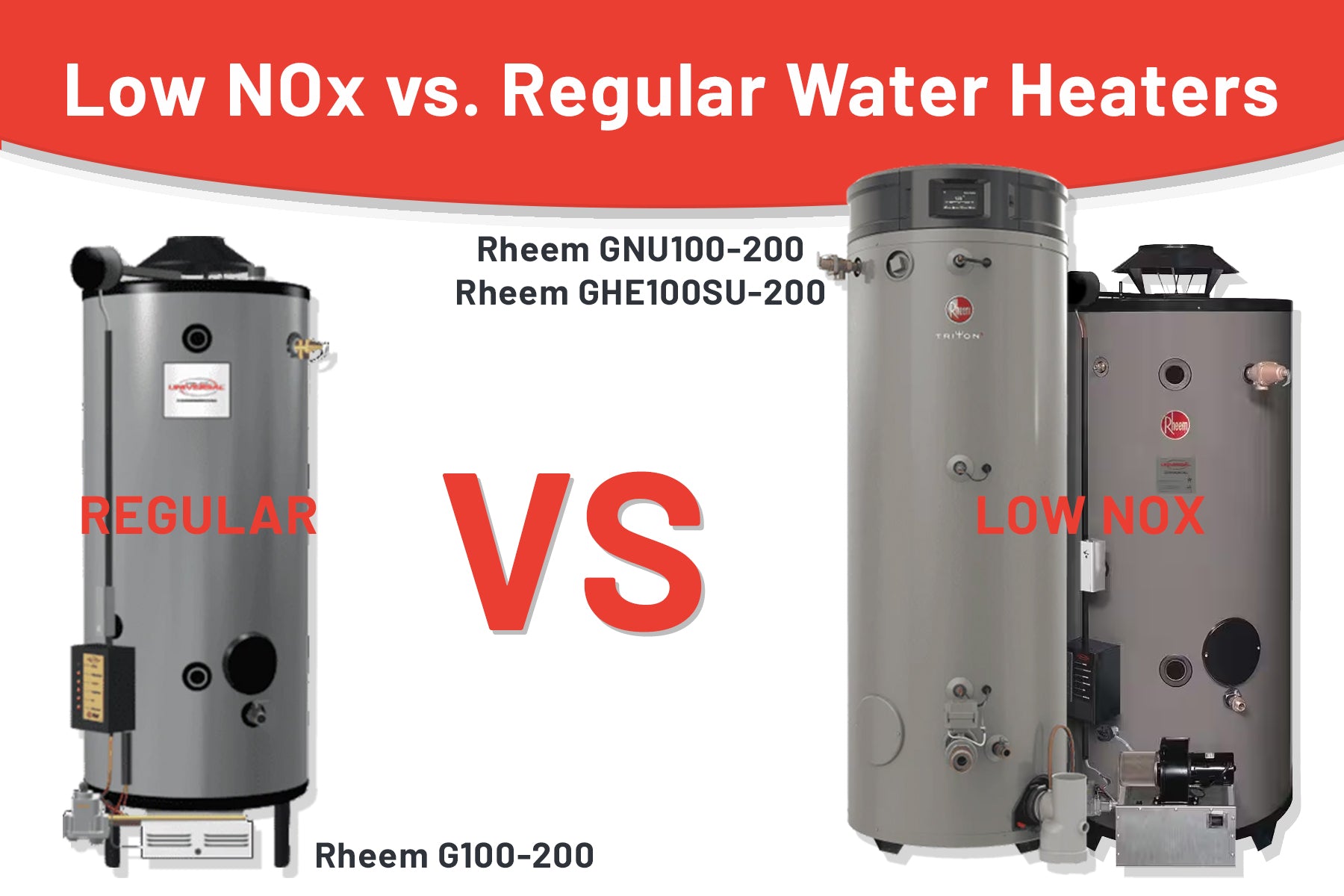
Low NOx vs. Regular Water Heaters: Understanding the Differences
| Noah Beson
Water heaters are an essential appliance in most businesses, providing us with hot water for places such as hotels, restaurants, schools, and farms. However, as our awareness of environmental issues grows, so does the need for more eco-friendly appliances. This has led to the development of Low NOx water heaters as an alternative to regular water heaters. In this article, we will explore the differences between Low NOx and regular water heaters, shedding light on their environmental impact, efficiency, and performance.
Low NOx Water Heaters: An Eco-Friendly Option
NOx, or nitrogen oxides, are harmful pollutants produced during the combustion of fossil fuels. These emissions contribute to air pollution and have adverse effects on human health and the environment. Low NOx water heaters are designed to significantly reduce the emissions of these harmful gases compared to their regular counterparts.
-
Emissions Reduction: Low NOx water heaters employ advanced combustion technology, such as pre-mix burners and flue gas recirculation, to lower the levels of NOx emissions. This results in a cleaner, more eco-friendly operation.
-
Compliance with Regulations: Many regions and local authorities have established strict regulations regarding NOx emissions from residential and commercial appliances. Low NOx water heaters are engineered to meet or exceed these standards, ensuring compliance and minimizing their environmental impact.
Regular Water Heaters: Traditional Technology
Regular water heaters, also known as conventional or standard water heaters, have been a staple in households for decades. They typically operate by burning natural gas or using electric resistance heating elements to heat water. While effective at providing hot water, they tend to emit higher levels of NOx and may not meet modern environmental standards.
-
Environmental Impact: Regular water heaters emit more NOx and other pollutants into the atmosphere, contributing to smog and poor air quality in some areas. This can have detrimental effects on public health and the environment.
-
Compliance Issues: In regions with stringent emissions regulations, regular water heaters may require additional retrofitting or upgrades to meet the NOx emission standards, increasing the overall cost of ownership.
Efficiency and Performance Comparison
Apart from environmental considerations, there are efficiency and performance differences between Low NOx and regular water heaters that can influence your choice.
-
Efficiency: Low NOx water heaters often have a higher energy efficiency rating compared to regular water heaters. This means they can heat water using less energy, leading to lower utility bills and reduced energy consumption.
-
Performance: Low NOx water heaters are engineered to deliver consistent and reliable hot water supply while reducing emissions. Regular water heaters may vary in performance and can experience temperature fluctuations during use.
-
Lifespan: Both Low NOx and regular water heaters can have a similar lifespan if properly maintained. However, the increased efficiency of Low NOx units can potentially extend their operational life due to reduced wear and tear.
Considerations for Your Business
When deciding between a Low NOx and regular water heater, there are several factors to consider:
-
Local Regulations: Research your local emissions regulations and standards to determine whether Low NOx water heaters are required in your area. For instance, states such as Texas, Utah, and California require you to have a low NOx water heater.
-
Environmental Impact: If you are environmentally conscious, opting for a Low NOx water heater is a responsible choice to reduce your carbon footprint.
-
Energy Efficiency: Assess your businesses hot water consumption and choose a water heater that meets your needs while maintaining energy efficiency.
-
Budget: While Low NOx water heaters may have a higher upfront cost, the potential energy savings and environmental benefits over time can outweigh the initial expense.
Rheem Low NOx Water Heaters
Rheem manufacturers several different water heaters which can be used in states which require low NOx. Here are a list of these series:
- Universal Ultra Low NOx Heavy Duty Water Heaters: This is Rheem's most "basic" low NOx water heaters, which are a standard atmospheric vent, and 80% efficiency. Some of the models include the 100-Gallon GNU100-200, 91 Gallon GNU91-200, and the 76 Gallon GNU76-200.
- Triton Smart Universal (SU) Ultra High Efficiency: This series consist of power-vent high efficiency water heaters. These have an efficiency rating of up to 98%. Meaning you'll have monthly utility bill savings going with this model. Some of the most common models are the 100-gallon GHE100SU-200 and the 80-gallon GHE80SU-200.
- Triton Smart Auto Shutoff Valve (SS) Ultra High Efficiency: This is similar to the series listed above, however includes additional features such as a 5-year warranty, leak detection/auto-shutoff, integrated BMS connectivity, and energy/water usage reports.
Conclusion
In the pursuit of a greener and more sustainable future, Low NOx water heaters offer a promising alternative to regular water heaters. By significantly reducing NOx emissions, they contribute to cleaner air and improved environmental quality while providing efficient and reliable hot water. Ultimately, the choice between Low NOx and regular water heaters depends on your location, budget, and environmental priorities, but it's clear that Low NOx models are a step in the right direction for a more eco-friendly business.
